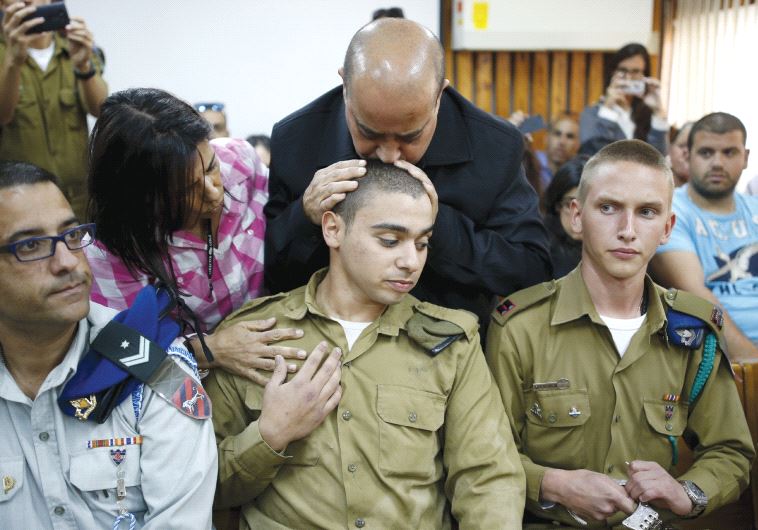President Rivlin rejects Hebron shooter Azaria's appeal
Defense Minister Avigdor Liberman sent a letter to the president two weeks ago asking him to pardon Elor Azaria.
 THE FATHER OF IDF soldier Elor Azaria kisses his head during a remand hearing last MarchUpdated:
THE FATHER OF IDF soldier Elor Azaria kisses his head during a remand hearing last MarchUpdated: